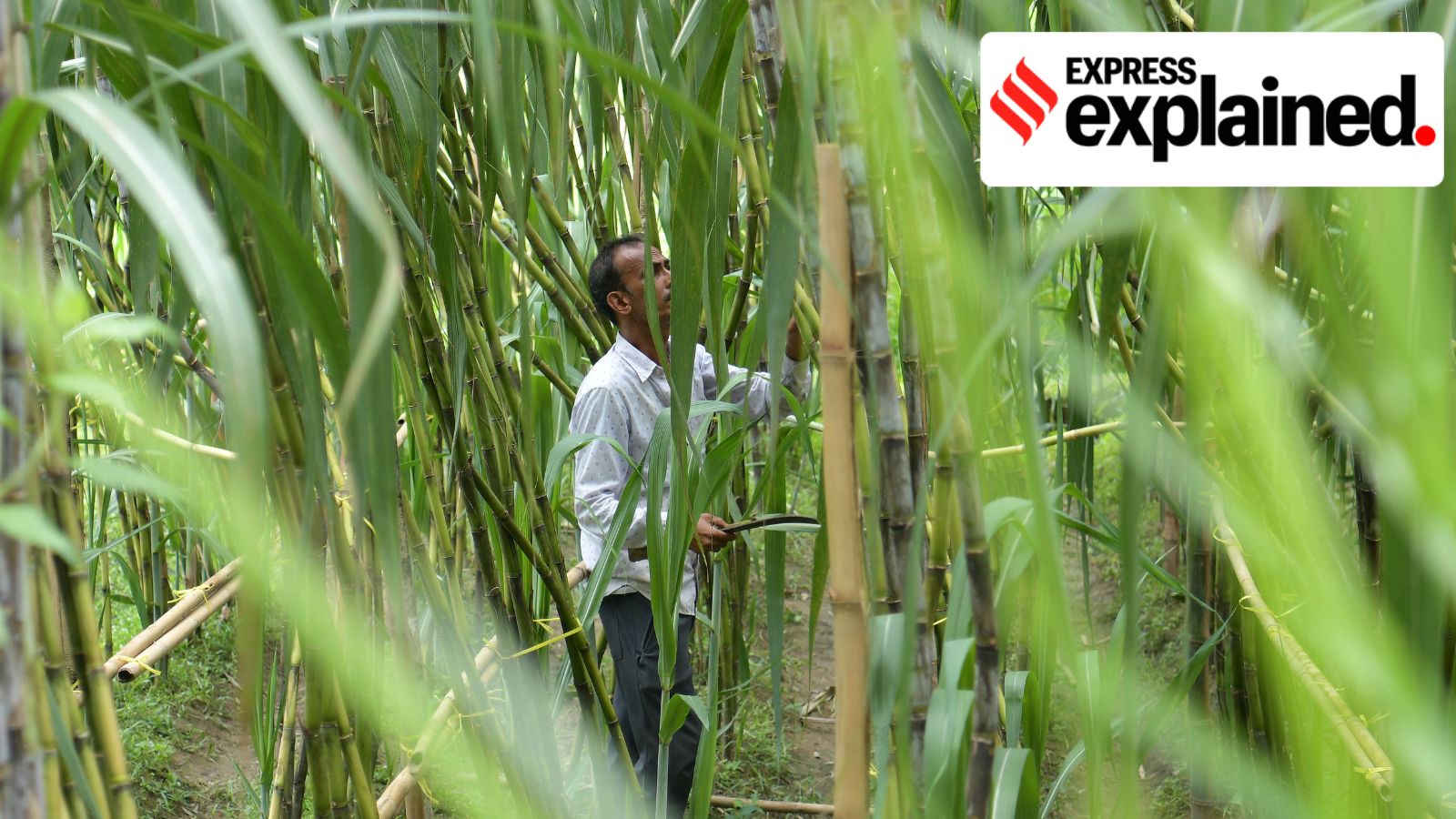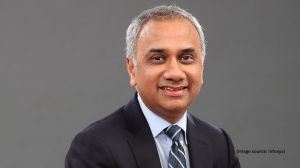Explained: HC, govt orders on Maharashtra sugarcane payments, why they matter for the state
The Uddhav Thackeray govt allowed sugar mills to pay their farmers in two installments. The HC has quashed that order, and a challenge to the SC is likely. The Maharashtra government has a strong representation of sugar millers.
 Cane growers are paid under the Centre’s Fair and Remunerative Price (FRP) mechanism. (Express Photo)
Cane growers are paid under the Centre’s Fair and Remunerative Price (FRP) mechanism. (Express Photo)The Maharashtra government on Tuesday (April 15) rescinded an order passed by the previous Maha Vikas Aghadi (MVA) government in 2022, which allowed sugar mills to pay sugarcane farmers in two instalments.
The action by the Devendra Fadnavis government followed an order by the Bombay High Court last month, which set aside the 2022 Government Resolution (GR) and directed that farmers be paid in full for their cane.
How is the price of sugarcane determined for farmers?
Cane growers are paid under the Centre’s Fair and Remunerative Price (FRP) mechanism.
The FRP for sugarcane is decided every year by the Centre’s Cabinet Committee on Economic Affairs (CCEA) headed by the Prime Minister, on the recommendation of the Commission for Agricultural Costs and Prices (CACP), a body under the Ministry of Agriculture and Farmers’ Welfare.
The FRP for sugarcane is decided using the same mechanism as the one that is used to calculate the Minimum Support Price (MSP) of 23 other crops.
However, while the MSP is not legally guaranteed, sugar mills are legally obligated to pay the FRP within 14 days of the cane being sold by farmers, failing which the cane commissioner may act against the miller. Failure to clear farmers’ due can even lead to the attachment of mill properties.
The FRP is linked to the recovery of sugar from the cane – that is, the ratio of the sugar produced to the cane crushed, expressed as a percentage.
The CCEA approved the FRP for sugarcane payable by sugar factories for the sugar season of 2024-25 (October-September) at Rs 340/ quintal at the sugar recovery rate of 10.25%. This was higher than the FRP of Rs 315/ quintal for the basic recovery rate of 10.25% approved for the sugar season of 2023-24.
What was the 2022 GR in Maharashtra?
On February 21, 2022, when Uddhav Thackeray was Chief Minister, the Maharashtra Department of Cooperation and Marketing issued a GR that changed the manner in which millers would pay their growers under the FRP mechanism.
The GR said that the FRP would be paid in two installments, instead of a one-shot payment to farmers.
The first instalment would be paid at the base recovery rate of 10% for the Pune and Nashik divisions, and of 9.50% for the rest of the state.
The second (final) instalment would be paid after the final, mill-wise recovery is calculated within 15 days of the closure of the season. The final recovery would be calculated by taking into consideration the total sugar produced and the total sugarcane crushed for the season.
The GR argued this would benefit farmers as they would get payments as per the current season’s recovery.
But cane growers said the GR was unconstitutional – and former MP and farm leader Raju Shetti moved the High Court challenging the order. Shetti, who belongs to Kolhapur district, the sugar bowl of Maharashtra, argued that FRP is a central regulation that the state cannot tamper with.
And what did the High Court say?
In its judgment pronounced on March 17, a Bench of Justices G S Kulkarni and Advait M Sethna “quashed and set aside” the 2022 GR for “being violative of…[the Centre’s] Sugarcane (Control) Order, 1966 read with…the Maharashtra Regulation of Sugarcane Price (Supplied to Factories) Act, 2013”, and restored the earlier system of payment to farmers at one go.
The court declared that “sugarcane farmers are entitled to the Fair Remunerative Price (FRP) for the sugarcane supplied by them, to the sugar factories at the beginning of the crushing season, as determined by the Central Government as per…[the] SCO, 1966”.
The court noted that both sugar and sugarcane are controlled items under the purview of the Essential Commodities Act, 1955. The “Central Government is conscious that the sugarcane grower ought to be paid fair price for the sugarcane grown by them and supplied to the sugar factories, in providing for timelines for payment of the price of sugarcane within 14 days of being supplied by them to the sugar factories. …The Central Government is alive that there cannot be any delay in payment of the basic fair price of the sugarcane harvested by the agriculturalist.”
There also cannot be “any speculation and/ or any uncertainty in receipt of the price for the sugarcane by the agriculturist”, the court said. “It…cannot be that the agriculturist supply the sugarcane as harvested by them and are required to endlessly wait till the end of the crushing season to receive the basic price of their products as supplied to the sugar factories. If this is accepted to be the regime as to what would happen to the farmers/ agriculturists and their suffering, cannot be imagined,” it said.
“There cannot be a situation that the farmers become debt ridden, as it is only on the receipt of the fair price for the sugarcane as supplied by them, depends their further activities, for the next crushing season,” the court said.
Do sugar millers find it easier to pay their farmers in installments?
Sugar millers in Maharashtra hypothecate the sugar stock before the start of the season. During the season, mills sell sugar and use part of the money they make to service their loans and to pay their farmers.
Most mills find it difficult to juggle their finances, and a provision to pay the FRP in installments would bring them relief.
The GR was welcomed by the sugar industry, who felt it would allow them some opportunity to raise funds and manage their finances better. The majority of mills have already signed agreements with their farmers that allow them to pay the cane dues in parts.
What does the HC judgment and Tuesday’s order by the government mean for farmers and millers now?
The High Court order is likely to be challenged in the Supreme Court at some point. Until then, and unless the order is stayed, sugar mills will have to pay their farmers in one go.
Shetti has moved the Supreme Court with a caveat asking that farmers should be heard while deciding any challenges and cases in this regard.
The Maharashtra government has a strong representation of sugar millers, including Deputy Chief Minister Ajit Pawar, and Ministers Hasan Mushrif, Pankaja Munde, and Shivendrasinh Bhosale.
- 01
- 02
- 03
- 04
- 05






































